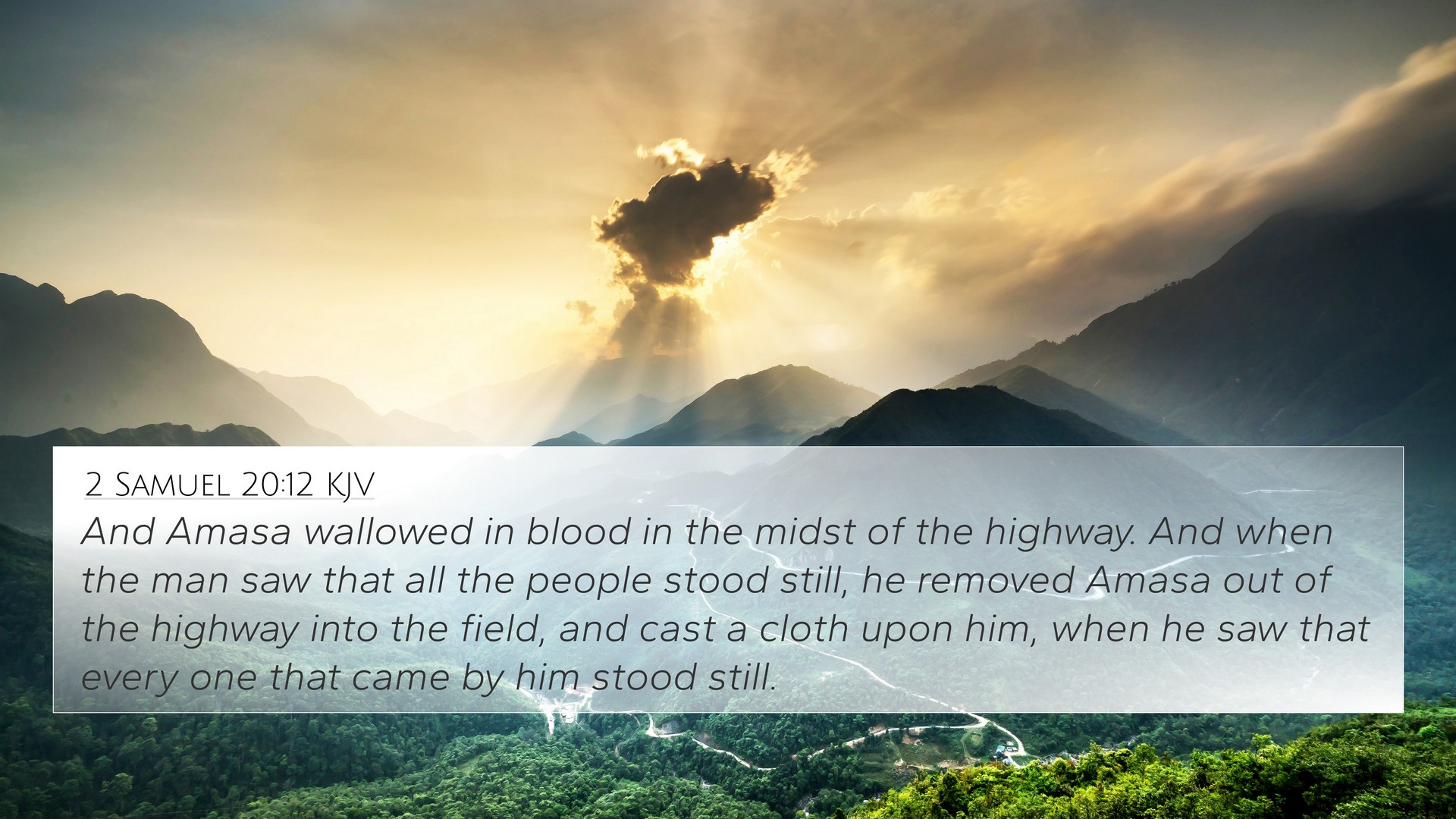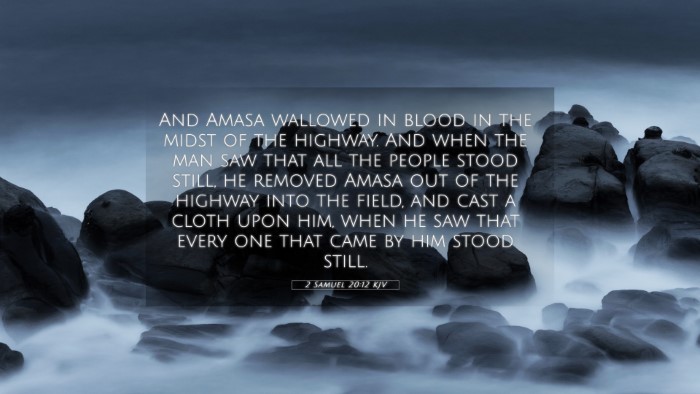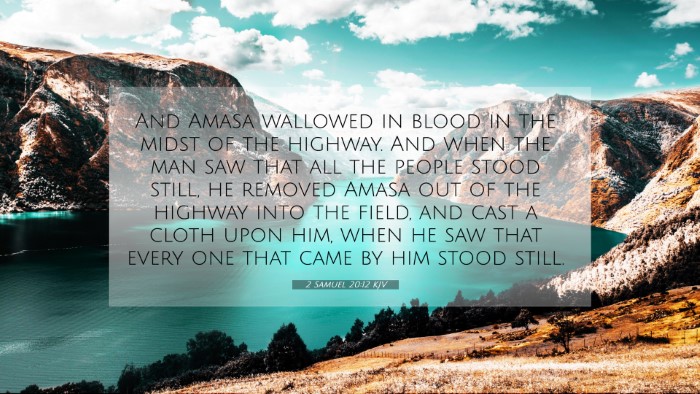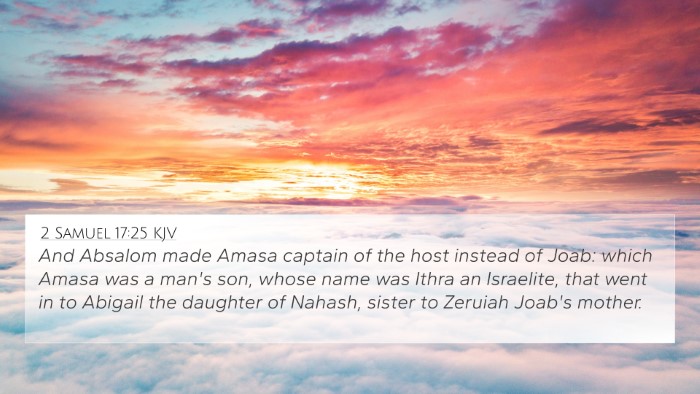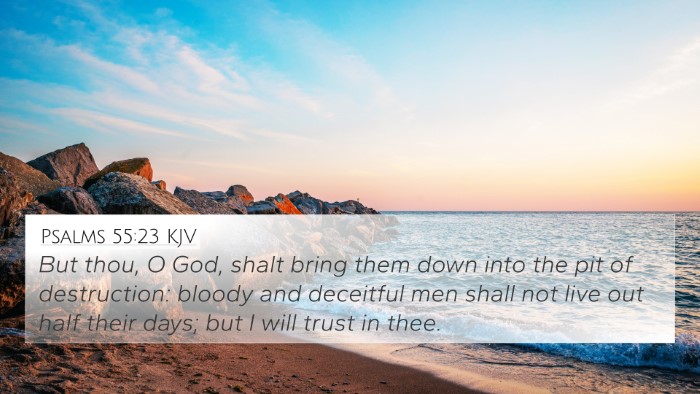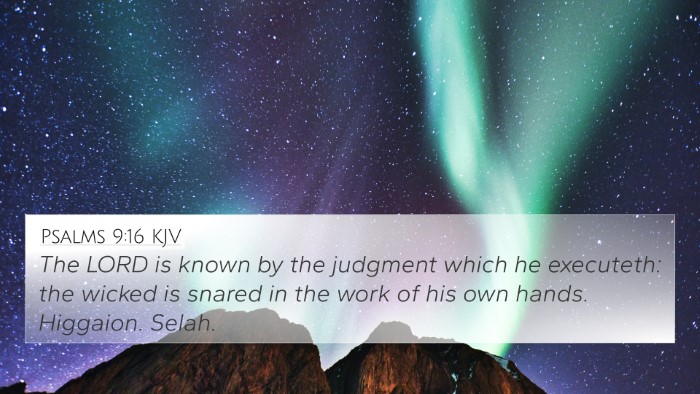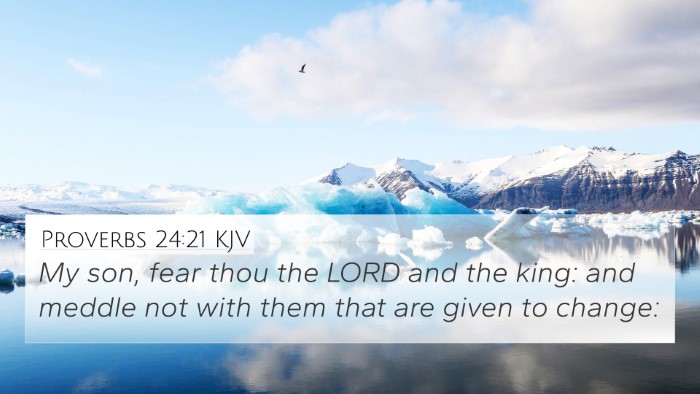Understanding 2 Samuel 20:12
2 Samuel 20:12 states: "But Amasa lay wallowing in his blood in the midst of the highway. And when the man saw that all the people stood still, he removed Amasa out of the highway into the field, and cast a cloth upon him." This verse occurs during a significant moment in the conflict following Absalom's rebellion, highlighting themes of leadership, mortality, and the urgency of action in times of strife.
Verse Summary
This passage depicts the aftermath of a violent confrontation. Amasa, a military leader, is mortally wounded, and his body is left in a public space, causing a halt in the activities of the people. The actions taken to move his body illustrate not only the respect afforded to the dead but also the necessity of continuing the work at hand despite tragedy.
Commentary Insights
Various public domain commentaries provide deeper insights into this verse:
-
Matthew Henry emphasizes the idea of Amasa's fate as a cautionary lesson about the implications of leadership and the stark reality of mortality in the midst of battle. Henry remarks on how Amasa was esteemed yet found in such a pitiful state, urging readers to consider the fragility of life and honor.
-
Albert Barnes provides an analysis of the significance of Amasa's placement in the highway, indicating it as a metaphor for the conflict's disruptive nature. Barnes discusses the practical implications of his death, affecting troop morale and the dynamics of loyalty in the unfolding political struggles within Israel.
-
Adam Clarke notes the physical details surrounding Amasa's body and the action taken to cover him, interpreting this as a sign of respect. Clarke highlights the importance of recognizing the human element in warfare, portraying Amasa not simply as a casualty but as a person deserving dignity even in death.
Cross-References
To deepen the understanding of 2 Samuel 20:12, here are several relevant Bible cross-references:
- 2 Samuel 3:38 - Discusses the impact of Abner's death on David and illustrates the significance of leadership loss.
- 1 Kings 2:5 - Refers to Joab's actions against Amasa, providing context for the ongoing conflict and rivalries.
- Proverbs 11:10 - Offers wisdom regarding the relationship between the welfare of the righteous and the impact on the broader community.
- Ecclesiastes 3:2 - Talks about a time for war and a time for peace, echoing the life-and-death scenarios central to this passage.
- Matthew 23:37 - The lament over Jerusalem relates to themes of conflict and the human toll of rebellion.
- Luke 13:1-5 - Jesus speaks of tragedies, connecting with the sobering details of Amasa's death and the lesson therein.
- John 15:13 - Discusses the greatest love being shown through sacrifice, paralleling the (potentially unfulfilled) loyalty Amasa had shown.
Thematic Connections
This verse encompasses themes of:
- Leadership and Accountability: Reflecting how the choices of leaders impact their followers and the consequences they face.
- Mortal Consequences of Conflict: The reminder that wars and disputes have dire human costs.
- Respect for the Dead: Encouraging honoring those fallen in conflict, regardless of the situation.
Conclusion
2 Samuel 20:12 is a profound scripture that invites readers to ponder the gravity of leadership and the indiscriminate nature of violence. Understanding this verse is enhanced through cross-references and thematic studies, which reveal the interconnectedness of biblical narratives. Utilizing Bible cross-reference tools, such as concordances and cross-reference guides, can help in linking Bible scriptures and uncovering the richness of Biblical themes.
